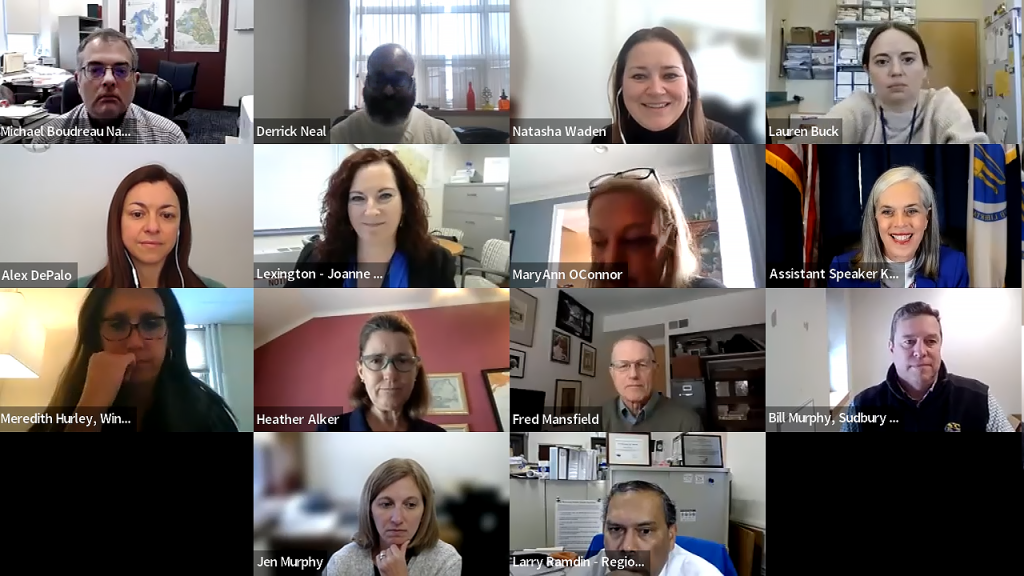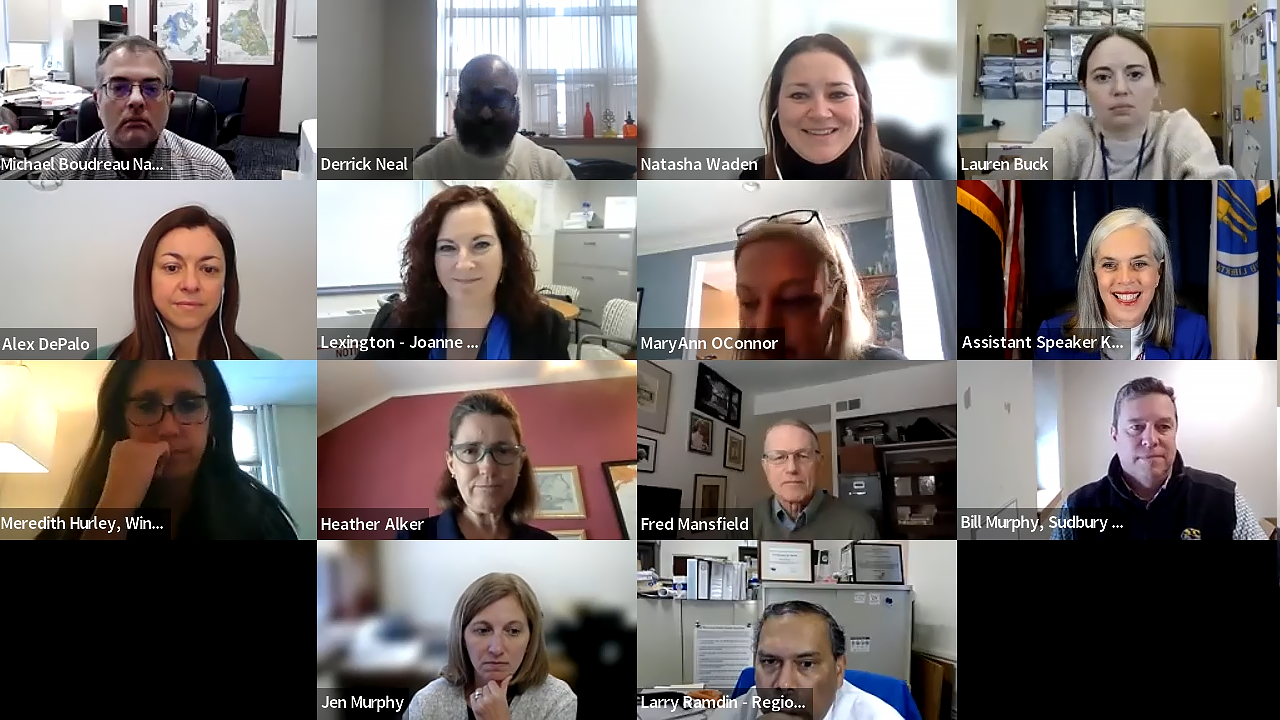In full transparency, the following is a press release from Assistant Speaker Katherine Clark’s office to SOURCE media. Clark is the congresswoman for this area. She is a Democrat. (stock photo)
***
[broadstreet zone=”59983″]
WASHINGTON, D.C. – Assistant Speaker of the U.S. House of Representatives Katherine Clark (MA-5) invited public health officials from across Massachusetts’ Fifth District as her virtual guests to the State of the Union address on Tuesday, March 1, 2022.
She met virtually with her guests ahead of President Biden’s address to thank them for their selfless work throughout the pandemic and discuss how the American Rescue Plan’s investments in local government, COVID-19 mitigation, and public health generally helped to keep their communities protected and safe.
“Throughout the pandemic, our incredible town and city public health officials have continued to put community before self, risking their own health to protect their neighbors from COVID-19. This is an opportunity to extend my heartfelt gratitude to these officials and all our health care heroes,” said Assistant Speaker Clark. “President Biden and Congressional Democrats knew that these local officials would be on the frontlines of the crisis, and that’s why we put health care investments at the top of our agenda in Washington. Only weeks after President Biden was sworn into office, we enacted the American Rescue Plan. It has enabled our cities and towns to provide COVID-19 testing and conduct contact tracing, allowed state and local governments to hire more staff, provided vital PPE, and so much more. I am honored to invite these hometown heroes to be my virtual guests to the State of the Union to applaud their service and bring attention to their sacrifices.”
[broadstreet zone=”59982″]
“Framingham is one of the 20 municipalities in Massachusetts that was hardest hit both by the COVID pandemic and then also in terms of accessing the vaccine,” Alexandra DePalo, Director of Public Health for the City of Framingham. “But when I think of what we’ve been able to accomplish, I really think of partnership. I think of the federal funding bringing the sort of flexibility and the opportunities for partnerships not only across public health departments in the region or within the departments in our city, but with so many health and human service organizations, non-profits, and small community-based organizations. Whether it’s around vaccine clinics or testing or contact tracing, none of us can do this alone and I’m so grateful for the support Framingham has received.”
I’m very thankful for the funding that the federal government provided directly to us. We were able to do testing in town instead of having seniors travel who had several mobility problems,” Larry Ramdin, Director of Public Health, City of Watertown. “In fact, when we looked at access to vaccination or testing sites, it would take someone close to 1- 2 hours to get there by public transportation. Additionally, we were able to provide increased allocations to food banks, hire local contact tracers, and provide mental health services for those who needed them. We have to recognize the invaluable work that local public health officials do — we are the boots on the ground. This funding helped us do our jobs and recognized the role we play.”
“I would like to thank Congresswoman Clark for having us as her virtual guests. Today was an important opportunity to communicate that public health infrastructure really needs support,” said Natasha Waden, Public Health Director for the Town of Arlington. “We need to put public health at the forefront because we really are first responders. We know our communities, and we know where to go to get resources to people. This means building off the infrastructure and the support provided by the Biden administration and Congress. I hope to see these investments continue going forward!”

“I have led health departments in the State of Texas for the past ten years before coming here. And the thing that I immediately noticed was the level of support from the Congresswoman,” said Derrick Neal, Chief Public Health Officer, Cambridge Public Health Department. “I’m really grateful for the synergy that exists in Massachusetts, specifically in Cambridge, in terms of everyone being on board wanting to eradicate this virus irrespective of what their ideology may be.”
“I am honored to be included among a group of truly incredible public health staff, and very grateful to Congresswoman Clark for recognizing us in this important way,” said MaryAnn O’Connor, Director Medford Board of Health. “Guiding our communities through an unprecedented global health crisis has been challenging for public health leaders, caregivers, community leaders, and others, but being able to support our residents in need is exactly why we do what we do daily in public health. It is thanks to the advocacy of representatives like Congresswoman Clark, who recognizes the need to continue to support local public health that we received critical funding and resources to aid in our efforts, and we are truly grateful for her ongoing work.”
Town officials from Winthrop, Lincoln, Sherborn, Sudbury, Southborough, Lexington, Winchester, Revere, and Natick also participated in the virtual call.
[broadstreet zone=”53820″]
The American Rescue Plan provided:
- $350 billion to states, territories, Tribes, and local governments:
- MA received a total of $8.1 billion: $4.5 billion to state government and $3.6 billion to local governments
- Funds could be used for responding to the public health emergency, to offset revenue losses, bolster economic recovery, and provide premium pay for essential workers.
- $10 billion for a Critical Infrastructure Projects program to help states, territories, and Tribal governments carry out critical capital projects directly enabling work, education, and health monitoring, including remote options, in response to COVID-19.
- $7.6 billion for public health departments to hire 100,000 full-time employees into the public health workforce.
- These positions include contact tracers, social support specialists, community health workers, public health nurses, epidemiologists, lab personnel, and communications.
- Funds were directed toward PPE, technology, data management, supplies, and reporting
[broadstreet zone=”58610″]


